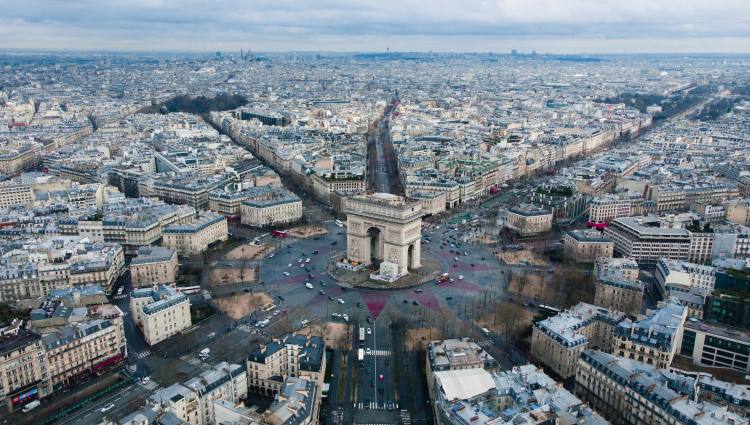The Sarkozy Scandal

On Monday, March 1st, 2021, France’s former President Nicolas Sarkozy joined an increasingly long list of French Presidents to be found guilty of a crime after their term. Although the idea of Sarkozy being corrupt came as a shock to very few people on the left of the French political spectrum, it did send shock waves through the conservative French voting block. Although he is not the first to be convicted in a court of law, former President Jacques Chirac being the most notable, Sarkozy is the first President of France to be handed a possible prison term, albeit house arrest, since 1945. This the same year that former President Pétain was given a prison sentence for collaboration with the Nazi regime.
France’s political system is multifaceted and generally complicated. Due to the semi-presidential system, France is characterized by its variety of political parties. Unlike the American two-party system, there is a wide breadth of choice for French voters and there are instances in which political parties aside from the two most prominent have achieved majorities in parliament and had presidents elected. However, the two most influential political parties in France are Les Républicains (LR), and the Parti Socialiste (PS).
The former party, to which Sarkozy belongs, is considered to be center-right to right. In 2015, after several scandals mainly focused on corruption, LR adopted its current name in favor of the former title (L'Union pour un Mouvement Populaire) in order to separate itself from the previous scandals and unpopular policies. This is not the first time LR, or other French political parties for that matter, have done this. Although it shares the same name, LR is not comparable to the American Republican Party. Instead, it can be compared in the American context to being a bit further right of the Democratic Party.
Image credit: Maria Oswalt/UnsplashLes Socialistes (PS) is the other prominent French political party. They are characterized as center-left in European politics. They support a strong welfare state and a participative democracy. Former President Hollande (2012-17) was a notable member of the PS.
Then there are the third parties. Notable parties include the far-left Green Party (Europe Ecologie Les Verts), the center LREM (La République en Marche), and the far-right RN (Rassemblement National). Evidence of the width of France's political system is the fact that President Emmanuel Macron, as well as the majority of the current Parliament, belong to the LREM. This third-party began as a political movement by Macron and led to his ultimate election and parliamentary success.
Corruption, especially financial and campaign corruption, has plagued modern French politics for years. In this newest development, Sarkozy has been found guilty of trying to illegally obtain information from a magistral official by offering a prestigious position in Monaco. The official, Gilbert Azibert, was involved in a legal inquiry regarding claims that Sarkozy took illegal payments from the heiress to the L’Oreal fortune, the late Liliane Bettencourt. What has become referred to as the “wiretapping” case, due to the fact that the incriminating information found against Sarkozy came from tapping phone conversations between him and his lawyer, is an important step in furthering the application of rule of law. Of course, while Sarkozy is unlikely to physically serve his sentence in a jail cell, it still proves that the previous tendencies of the French judiciary to not fully apply the law to former officials are diminishing.
In addition to Sarkozy himself, both the former magistrate Azibert and Sarkozy’s lawyer, Herzog, have been dealt guilty verdicts and prison sentences.
Image credit: Glen Carrie/UnsplashDue to the absence of a prominent political figure on the right, many have rumored that Sarkozy himself was considering a “comeback run” in the 2022 elections. This seems increasingly unlikely. While this is the first case to provide a verdict, there are several other ongoing cases and investigations regarding corruption involving Sarkozy. Notably, an investigation into LR’s possible acceptance of contributions to his campaign from the Libyan Dictator, Gaddafi, in which millions of euros were allegedly shipped to Paris in suitcases.
This case, as well as others that are currently being litigated, point to an increased desire for the French judiciary to act as an independent and impartial actor in French politics. This is a positive sign that French elites may finally be held equally responsible for their actions as the rest of the public.
Additionally, it adds a further layer of complexity to the upcoming 2022 elections. France, like many other European states, has seen an increase in support for far-right nationalist candidates and parties. Polling indicates that Marine Le Pen, the leader of the RN, is a front runner for the first round of the two-round system. Sarkozy being politically blacklisted due to this verdict is relevant in the fact that there now seems to be no likely opposition on the center-right to Macron and Le Pen.
People familiar with French politics may view this as vaguely familiar. The same two candidates faced off in the second round of the 2017 elections. However, the general disapproval of the French public with the mishandling of the pandemic by Macron’s government and a trend towards nationalism may lead to the opposite outcome in next year's race from five years ago.









